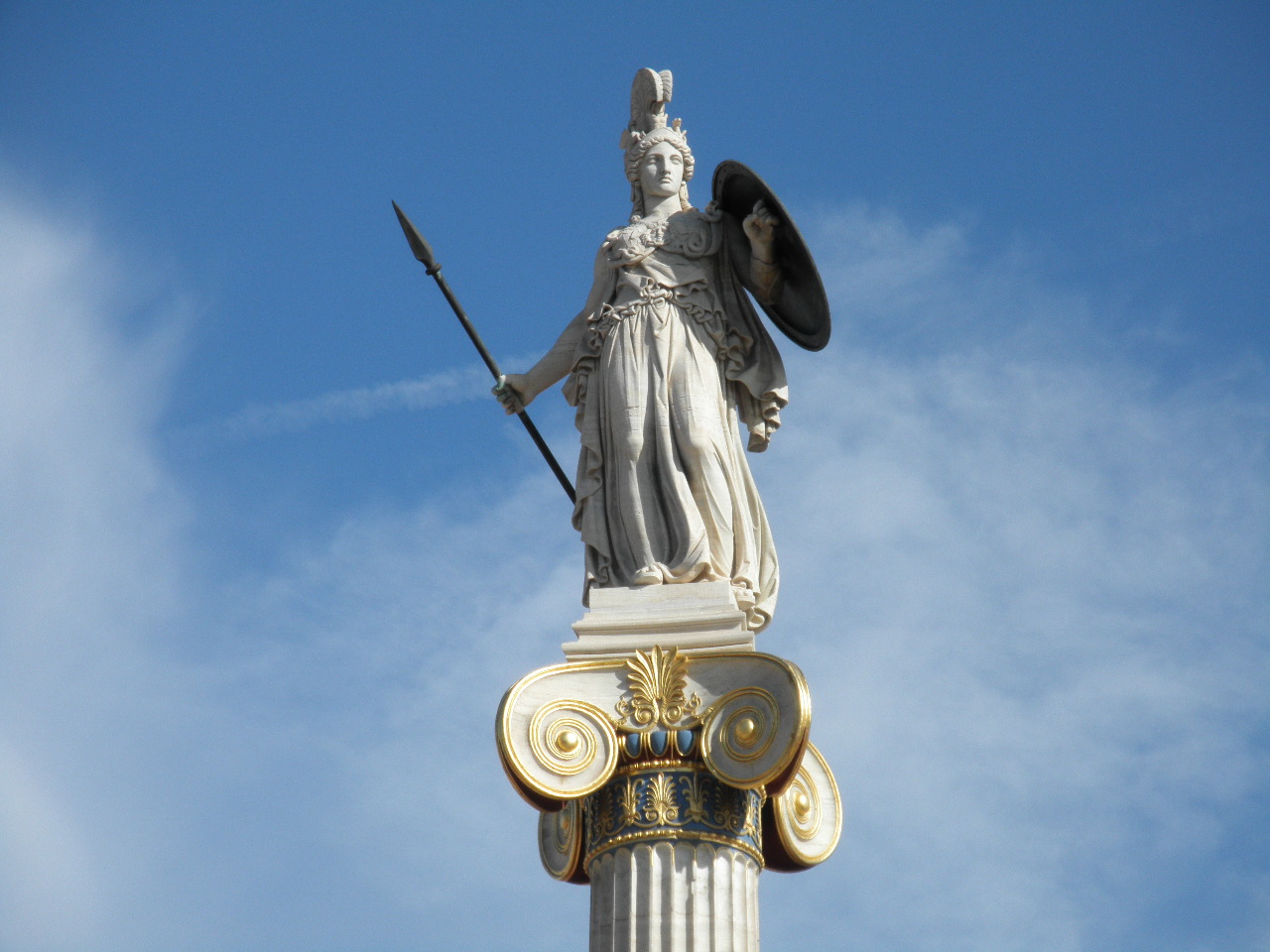Greek Spirit

|
|
Mythology |
|
|
Sophia (Σοφία, Greek for wisdom) is a central idea in Hellenistic philosophy and religion, Platonism and Gnosticism. The ancient Greeks considered wisdom to be an important virtue, personified as the goddess Metis and her daughter Athena. Athena is said to have sprung from the head of Zeus. She was portrayed as strong, fair, merciful, and chaste. To Socrates and Plato, philosophy was literally the love of Wisdom (philo-sophia). This permeates Plato's dialogues, especially The Republic, in which the leaders of his proposed utopia are to be philosopher kings: rulers who understand the Form of the Good and possess the courage to act accordingly.
"I have presented the reader with a specimen of that sublime wisdom which first arose in the colleges of Egyptian priests and flourished afterwards in Greece. Which was there cultivated by Pythagoras, under the mysterious veil of numbers; by Plato in the graceful dress of poetry; and was systematized by Aristotle, as far as it could be reduced into scientific order. Which after becoming in a manner extinct shone again with its pristine splendor among the philosophers of the Alexandrian school; was learnedly illustrated with Asiatic luxuriancy of style by Proclus; was divinely explained by Iamblichus; and profoundly delivered in the writings of Plotinus. Indeed the works of this last philosopher are particularly valuable to all who desire to penetrate into the depths of this divine wisdom". – Thomas Taylor, An Essay on the Beautiful from the Greek of Plotinus.
The Greeks loved beauty, and that made them artists. They loved power, and that made them warriors. They loved wisdom, and that made them wise men. Such wise men and seers were Orpheus, Epimenides, Pherecydes and Alcman. The first Greek philosophers, the Milesian school in the early 6th cent. B.C., consisting of Thales, Anaximander, and Anaximenes, were concerned with finding the one natural element underlying all nature and being. They were followed by Heraclitus, Pythagoras, Parmenides, Empedocles and Democritus.
Seven Wise Men
Many wise men, or philosophers, lived in Greece at different times. There were seven who were thought to be wiser than all the rest. After they were dead a saying of each was painted on the walls of the temple at Delphi.
Sapta Rishis (seven seers), are the seven great sages in Indian Mythology. They have attained a semi-immortal status, that of an exceedingly long life span due to their Yogic power and by the power of their penance. The sages are Vasishta the preceptor of Ishvahu clan, Marichi, Angirasa, Atri, Pualsthya, Pulaha and Krathu. They are said to be the constellation Ursa Major (Big dipper) and all revolve around Dhruva, the pole star.
The idea that there had once been seven extraordinary wise people was probably introduced in the west from Babylon, where the seven Apkallu were believed to have lived before the Great Flood. The first Greek to refer to a similar, yet less mythological tradition is the Athenian philosopher Plato (427-347), who mentions seven names of wise people that "were lovers and emulators and disciples of the culture of the Spartans": Traditionally, each of the seven sages represents an aspect of worldly wisdom which is summarized in an aphorism. Although the sages included in the list has sometimes varied, the most usual ones included are the following ones:
Cleobulus of Lindos: circa 600 BC; Solon of Athens: (640-559 BC), a famous legislator and social reformer from Athens; Chilon, a Spartan politician from the 6th century BC; Bias of Priene, a famous legislator from the 6th century BC; Thales of Miletus, the first known philosopher and mathematician; Pittacus of Mytilene: (650 BC) governed Mytilene (Lesbos); Periander of Corinth: he was the Tyranos of Corinth around the 7th and 6th centuries BC.
The oldest explicit mention on record of a standard list of seven sages is in Plato's Protagoras, where Socrates says: “They all emulated and admired and were students of Spartan education, and one could tell their wisdom was of this sort by the brief but memorable remarks they each uttered when they met and jointly dedicated the first fruits of their wisdom to Apollo in his shrine at Delphi, writing what is on every man's lips: Know thyself, and Nothing too much. Why do I say this? Because this was the manner of philosophy among the ancients, a kind of laconic brevity.”
![]()











